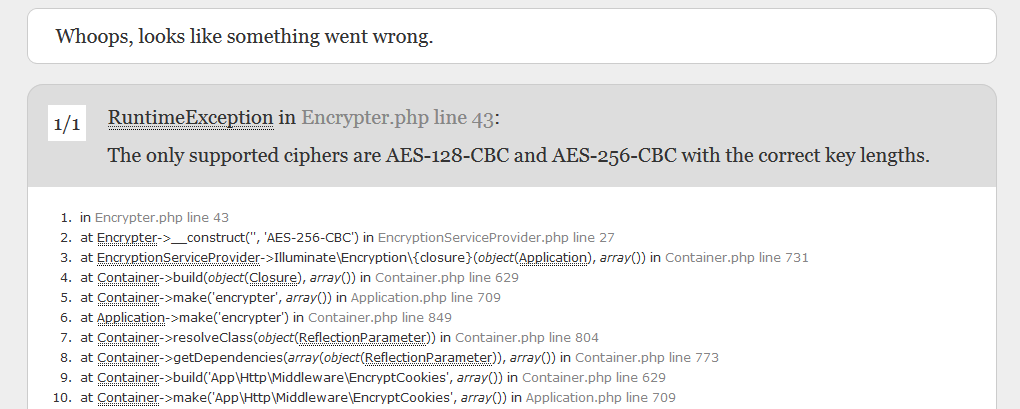Pyhton Generate Aes 256 Key
Apr 27, 2016 Encrypt data using AES and 256-bit keys AES stands for Advanced Encryption Standard and is an industry-standard algorithm for encrypting data symmetrically which even the US government has approved for SECRET documents. In the following python 3 program, we use pycrypto classes for AES 256 encryption and decryption. The program asks the user for a password (passphrase) for encrypting the data. This passphrase is converted to a hash value before using it as the key for encryption.
- Cryptography with Python Tutorial
- Useful Resources

- Selected Reading
Modern cryptography is the one used widely among computer science projects to secure the data messages. This tutorial covers the basic concepts of cryptography and its implementation in Python scripting language. After completing this tutorial, you will be able to relate the basic techniques of cryptography in real world scenarios.
This tutorial is meant for the end users who aspire to learn the basics of cryptography and its implementation in real world projects. This tutorial is also useful for networking professionals as well as hackers who want to implement new frameworks instead of following a traditional approach.
/cisco-asa-generate-rsa-key.html. Throughout this tutorial, you will learn the basics of cryptography, algorithm description and its implementation in Python. This tutorial is designed with an assumption that the user has an understanding on the basics of cryptography and algorithms. If you are a beginner to these topics, we suggest you to go through tutorials related to them, before you start with this tutorial.
Aes 256 Software
| #!/usr/bin/env python |
| importbase64 |
| fromCryptoimportRandom |
| fromCrypto.CipherimportAES |
| BS=16 |
| pad=lambdas: s+ (BS-len(s) %BS) *chr(BS-len(s) %BS) |
| unpad=lambdas : s[0:-ord(s[-1])] |
| classAESCipher: |
| def__init__( self, key ): |
| self.key=key |
| defencrypt( self, raw ): |
| raw=pad(raw) |
| iv=Random.new().read( AES.block_size ) |
| cipher=AES.new( self.key, AES.MODE_CBC, iv ) |
| returnbase64.b64encode( iv+cipher.encrypt( raw ) ) |
| defdecrypt( self, enc ): |
| enc=base64.b64decode(enc) |
| iv=enc[:16] |
| cipher=AES.new(self.key, AES.MODE_CBC, iv ) |
| returnunpad(cipher.decrypt( enc[16:] )) |
| cipher=AESCipher('mysecretpassword') |
| encrypted=cipher.encrypt('Secret Message A') |
| decrypted=cipher.decrypt(encrypted) |
| printencrypted |
| printdecrypted |
commented Jan 13, 2014
AWESOMESAUCE. |
Python Generate Aes 256 Keys
commented Sep 16, 2016
This only works because the 'mysecretpassword' is 16 bytes. If it were a different (not dividable by 16) amount of bytes you'd get |
commented Dec 22, 2016
Very minor changes to make it python 3 compatible https://gist.github.com/mguezuraga/257a662a51dcde53a267e838e4d387cd |
commented Dec 19, 2017 • edited
edited
lambda removed(pep 8 support) |
commented Jan 20, 2018 • edited
edited
In Python 3 using the modifications of Craz1k0ek it still doesn't work with Unicode. For example the input Edit: found a working version: https://stackoverflow.com/a/44212550 |
commented Apr 26, 2018
i think this is aes 128, we have a standard blocksize of 16 bytes (128bit) |
commented Apr 26, 2018
Fips 140-2
i can't seem to find how to do aes256 |
commented Jun 5, 2018
Please provide the JAVA code equivalent to above which is in python. |